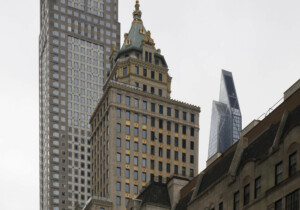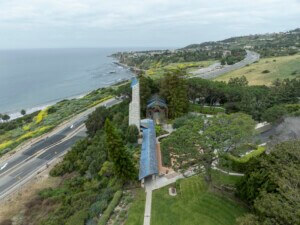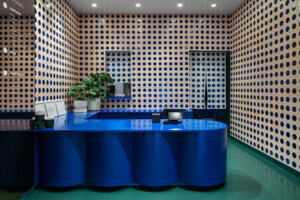After three years of deliberation, activists in Los Angeles have preserved the bungalow in Westlake where Morris Kight lived. On August 8, The Los Angeles City Council voted unanimously to save 1822 West 4th Street. The vote protects Kight’s home from demolition in the gentrifying area and adds it to the list of historic L.A. monuments.
For many, Morris Kight was larger than life. The intersectional activist was a trailblazer for LGBTQ+ rights and known for extending a helping hand to hundreds of queer and unhoused (oftentimes both) youths throughout Los Angeles. “Call me anytime, day or night,” he was famous for saying.
Born in Texas just after World War I, Kight was a mutual aid worker in California who supported individuals living with HIV/AIDS. He was also an outspoken advocate against police brutality, U.S. imperialism in Vietnam, and apartheid in South Africa who worked closely with the Oil, Chemical, and Atomic Workers International Union for workers’ rights. “I always advocated for labor and the gay movement to work closely,” Kight told a labor historian in 1997, six years before his death.

In 2020, Kight’s longtime friend Miki Jackson teamed up with a married same-gender couple, Kate Eggert and Krisy Gosney, to save the home when developers announced that they may tear it down for a new apartment complex. When news caught wind that Kight’s home was at risk, the Cultural Heritage Commission, AIDS Healthcare Foundation, and the L.A. LGBT Center quickly intervened, eventually supporting the home’s nomination for preservation which went through to L.A.’s planning commission on June 6.
Kight’s home is already listed on the National Register of Historic Places. Advocacy groups say that L.A. historic landmark status for the modest home is warranted because it’s where the city’s LGBTQ+ civil rights movement is said to have got its start. Reverend Dylan Littlefield, a local activist, called the bungalow “the world’s first gay services center.”
After moving to L.A. in 1958, Morris helped found the city’s Gay Liberation Front (GLF) chapter, a militant group cofounded in Philadelphia by Kiyoshi Kuromiya, a former architecture student who went on to become a civil rights activist. Quickly, Kight’s home in Westlake became the city’s GLF headquarters. Phone banks there fielded up to 200 phone calls a day from LGBTQ+ individuals seeking help. “Every call is priceless,” Kight often told volunteers, “Every call is important…[it is] the most urgent call you’ve ever had in your life.” Later, Kight helped build the militant Committee for Homosexual Freedom in solidarity with the Vietnamese National Liberation Front. Kight also founded the Christopher Street West gay pride parade in L.A. as well as the city’s Stonewall Democratic Club.
At present, less than 1 percent of L.A.’s historic landmarks have to do with LGBTQ+ heritage. Other significant landmark sites include The Black Cat on Sunset Boulevard and the Margaret and Harry Hays Residence, an international style home by architect Gregory Ain which served as headquarters for the Mattachine Society, “one of the first homophile (gay rights) organizations in the country.” The vote on August 8 to landmark Kight’s home goes into effect immediately.











